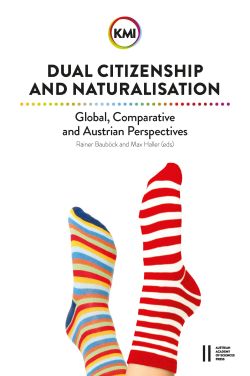
Dual Citizenship and Naturalisation. Global, Comparative and Austrian Perspectives, pp. 59-80, 2021/05/05
Global, Comparative and Austrian Perspectives

This chapter summarises the causes of the strong global trend towards the toleration of dual citizenship but then focuses on its possible limits and reasons for resistance by some states. I consider specifically why the two largest states in terms of population – China and India – adhere to a policy of strict non-toleration of multiple citizenship out of security concerns and adversarial ideologies of national sovereignty. I also examine the Eastern European context where policies of regional hegemony (by Russia) and the mobilisation of ethnic kin minorities in the near abroad for buttressing the domestic hegemony of political incumbents (by Hungary) have triggered counter-reactions against dual citizenship in neighbouring states. In so-called Western democracies, security concerns about terrorism have not led to a retreat from dual citizenship but have turned a second citizenship into a potential liability, as the possession of it allows states to denationalise citizens whom they consider to be a threat. Finally, the chapter considers whether demand and supply for dual citizenship might shrink if the hyperglobalisation since the 1990s were partly reversed in response to pandemics and the climate crisis.